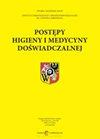Liver complications of total parenteral nutrition: the latest therapeutic strategies
IF 0.3
4区 医学
Q4 MEDICINE, RESEARCH & EXPERIMENTAL
引用次数: 0
Abstract
Abstract Total parenteral nutrition (TPN) is a life-saving nutritional therapy in conditions where enteral nutrition is contraindicated or inadequate. However, it has been associated with side effects, one of which is parenteral nutrition–associated liver damage (PNALD). The main features of PNALD are cholestasis, fatty liver disease, and early fibrosis, followed by disease progression, cirrhosis, and liver failure. Risk factors for parenterally fed patients include short bowel syndrome, bacterial overgrowth and translocation, disturbances in hepatobiliary circulation and lack of enteral nutrition, and the choice of an inappropriate fat mixture. The source of the oil present in lipid emulsions is believed to play an important role in the development of long-term complications. This review analyzes the current literature and research on the pathogenesis of PNALD. Likewise, possible options for preventing this complication were discussed.全肠外营养的肝脏并发症:最新的治疗策略
全肠外营养(TPN)是一种挽救生命的营养治疗条件下,肠内营养禁忌症或不足。然而,它与副作用有关,其中之一是肠外营养相关性肝损伤(PNALD)。PNALD的主要特征是胆汁淤积、脂肪性肝病和早期纤维化,随后是疾病进展、肝硬化和肝功能衰竭。肠外喂养患者的危险因素包括短肠综合征、细菌过度生长和易位、肝胆循环紊乱和缺乏肠内营养,以及选择不适当的脂肪混合物。脂质乳剂中油的来源被认为在长期并发症的发展中起重要作用。本文就PNALD发病机制的文献及研究现状进行综述。同样,讨论了预防这种并发症的可能选择。
本文章由计算机程序翻译,如有差异,请以英文原文为准。
求助全文
约1分钟内获得全文
求助全文
来源期刊

Postȩpy higieny i medycyny doświadczalnej
MEDICINE, RESEARCH & EXPERIMENTAL-
CiteScore
0.60
自引率
0.00%
发文量
50
审稿时长
4-8 weeks
期刊介绍:
Advances in Hygiene and Experimental Medicine (PHMD) is a scientific journal affiliated with the Institute of Immunology and Experimental Therapy by the Polish Academy of Sciences in Wrocław. The journal publishes articles from the field of experimental medicine and related sciences, with particular emphasis on immunology, oncology, cell biology, microbiology, and genetics. The journal publishes review and original works both in Polish and English. All journal publications are available via the Open Access formula in line with the principles of the Creative Commons licence.
 求助内容:
求助内容: 应助结果提醒方式:
应助结果提醒方式:


